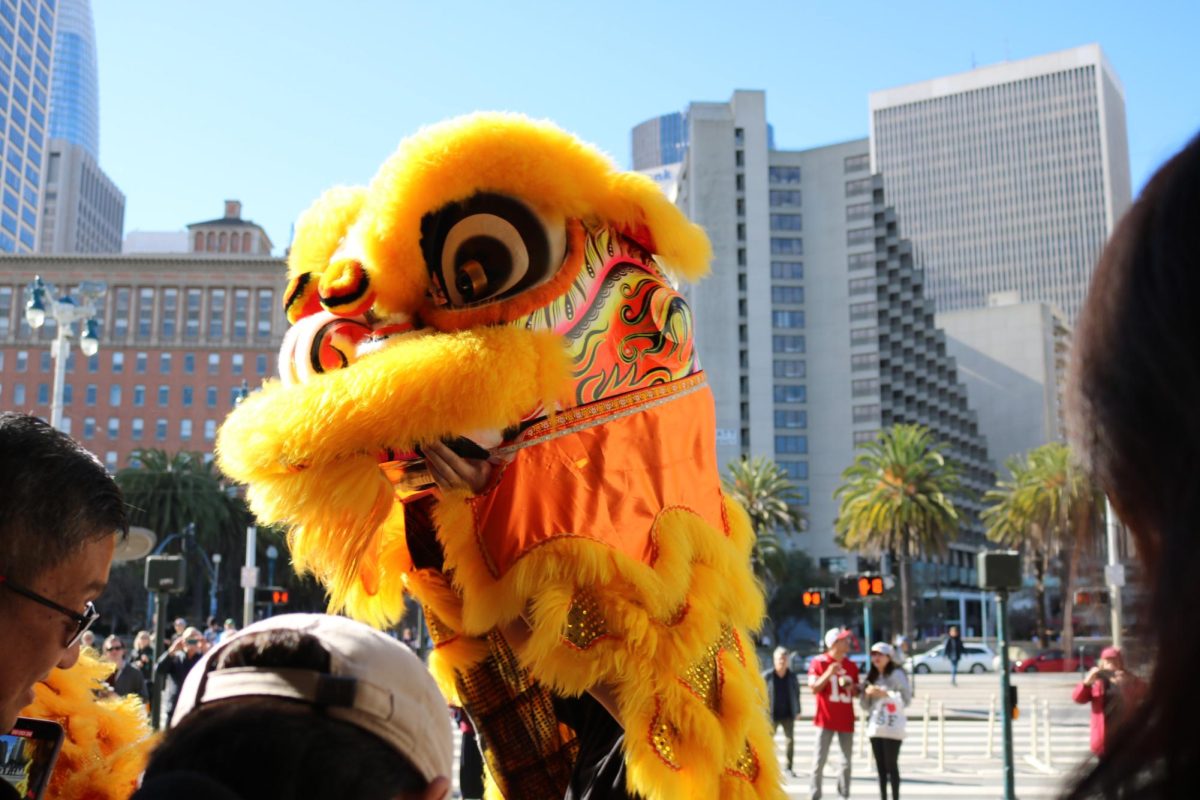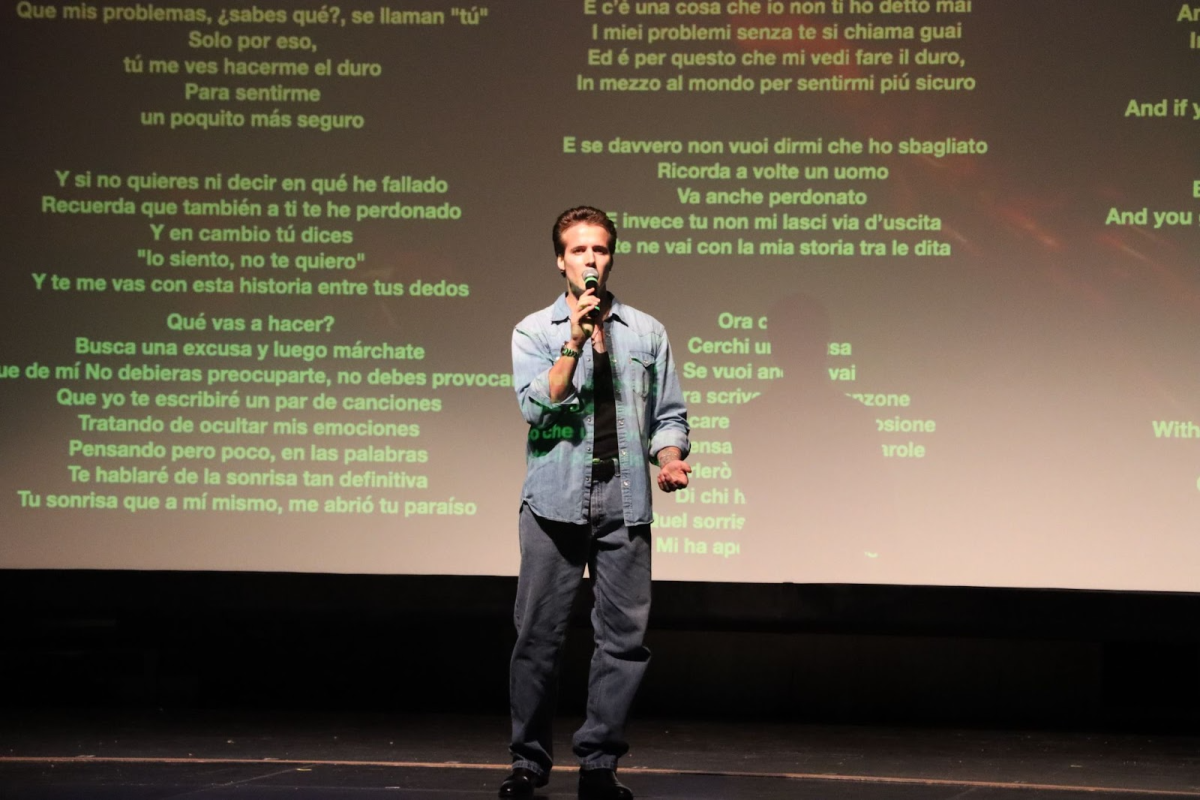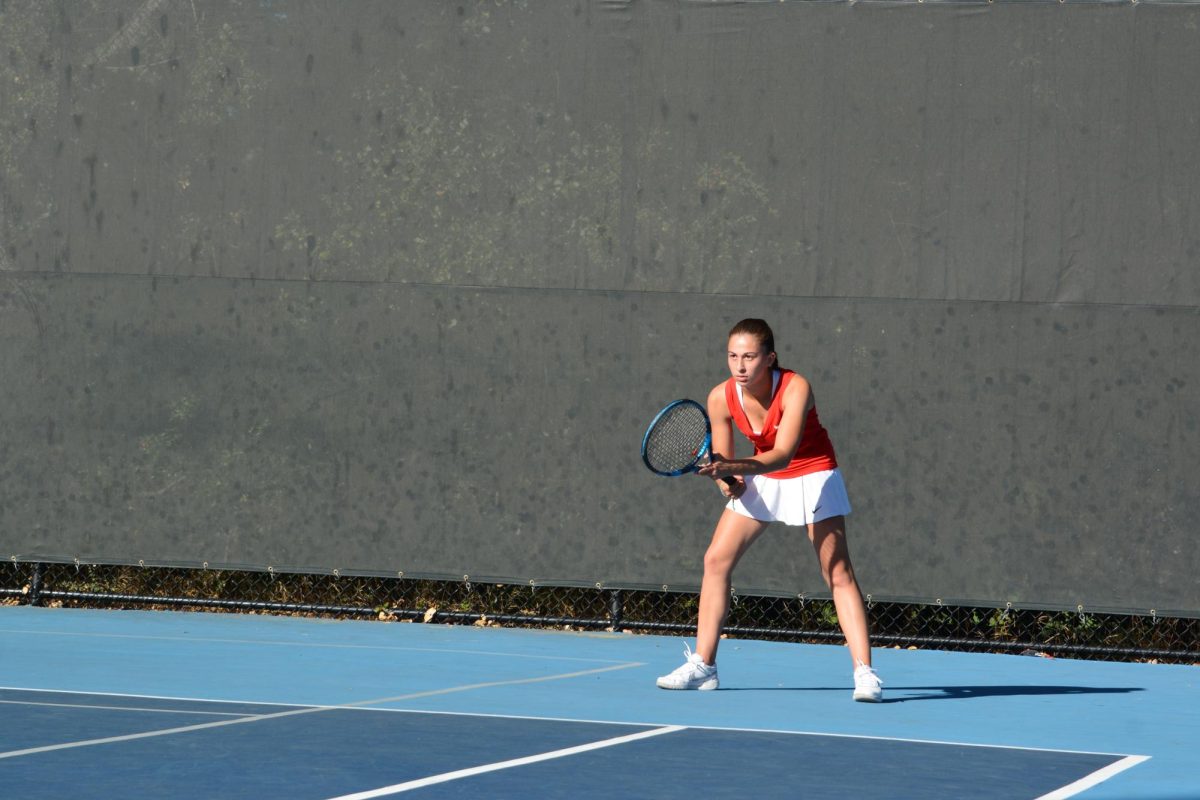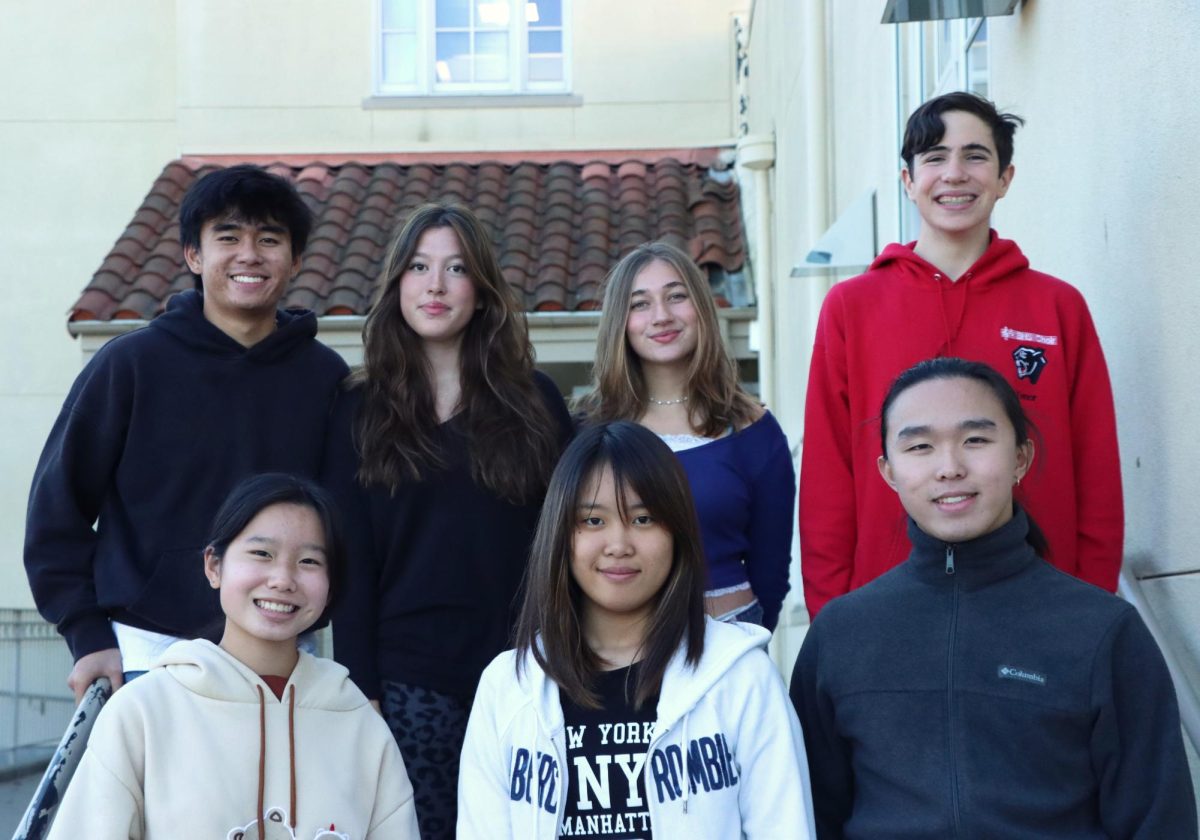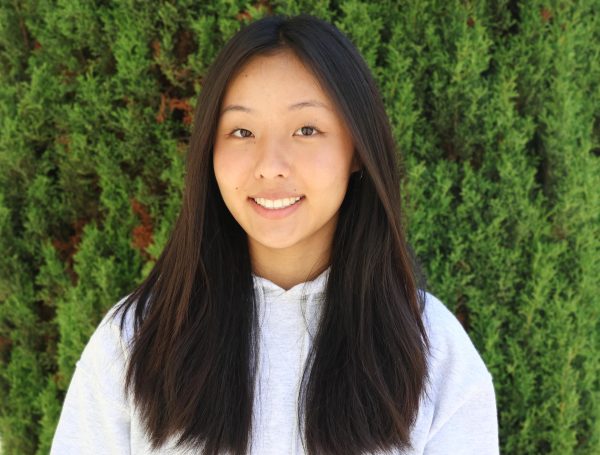In Chinese culture, Lunar New Year is an all-out celebration to secure an auspicious start and end of the year. It’s truly an unforgettable experience — whether it be the loud bang of firecrackers, the shiny gold and red decorations, beautiful lantern festivals or the energetic lion dance performances.
However, Lunar New Year isn’t limited to Asian countries — it is also celebrated widely across the U.S. In 2023, California was the first state to recognize Lunar New Year as an official holiday.
In Burlingame, some students with family in China celebrate virtually, while others with family in the U.S. gather together and eat dinner. The celebration is similar — people still attend festivals, hang up traditional red and gold spring couplets and distribute red envelopes.
Although Lunar New Year is traditionally celebrated by honoring past ancestors and celebrating old customs, members of the Burlingame community find unique reasons to enjoy the holiday.
Ryan Wang
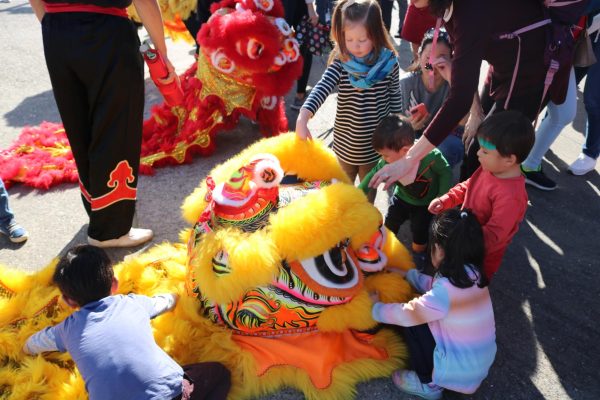
There are many universal dishes eaten for Lunar New Year — dumplings, fish, spring rolls, and nian gao — but if you ask around, the recipes for each dish often vary. Regional preferences cause slight variations in culture among Chinese and Taiwanese people and Junior Ryan Wang is no stranger to these differences, as he is reminded of them every Lunar New Year.
Wang’s dad is from mainland China, while his stepmom is from Taiwan. Because of slight variations in food preparation and tradition, each of his parents celebrates Lunar New Year differently. However, every year, his parents find common ground over one food: hotpot.
“Taiwanese people have different traditions. They eat different foods and [can] have different choices [on] what to put into hotpot,” Wang said. “Sometimes it causes some conflicts, but it doesn’t matter because I enjoy eating all [hotpot toppings].”
Because Wang grew up in the U.S., he doesn’t have as strong of a connection with the old customs and traditions.
“As a second-generation immigrant, I feel like a lot of the procedures are unnecessary,” Wang said. “They’re fun, but I think [Lunar] New Year is more about celebrating [with] your heart and culture.”
Still, Wang acknowledges that the deeply-rooted traditions add to the festivity and significance of Lunar New Year. While he deems some traditions unnecessary, he feels nostalgic when he reflects on his past celebrations in China.
“When I was in China, I’d go out with my good friends to go to all our neighbor’s [houses] and say, ‘Happy New Year,’” Wang said. “We [also] get some money and a lot of snacks. It’s basically trick-or-treating.”
While Wang no longer goes on such ventures during Lunar New Year, he enjoys going to festivals. However, he feels certain traditions have been lost in the later generations of Chinese Americans.
“I want to see more celebrating in terms of the actual traditions,” Wang said. “When I see other people celebrate, they’re probably like third or fourth generation. They don’t have [as] close ties with [Chinese culture].”
Determined for his heritage to not become lost through time, Wang also uses Lunar New Year as a time of reconnection.
“During [Lunar New Year] is when I call my friends back in China,” Wang said. “My dad sometimes makes me call my teachers and ask how they’re doing. It definitely brings me closer to China.”
Caroline Lin
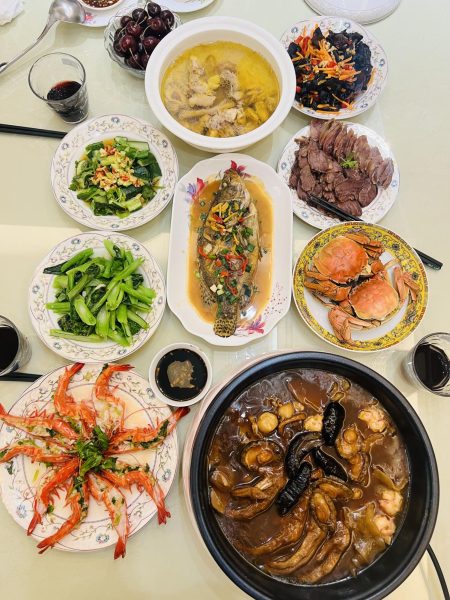
Born in Taiwan and the sole Chinese teacher at Burlingame, Caroline Lin keeps her students educated and connected with their heritage.
Growing up, Lunar New Year was always a prominent time of year for Lin. However, in the U.S., festivities have been reduced to simple celebratory dinners shared between family and close friends.
“[As] a child, I loved playing around with firecrackers, making dumplings, and [especially] seeing people come out eating,” Lin said. “Here, people make more pre-made food and have simpler decorations, which downplays the social aspect [of Lunar New Year].”
To keep the festive spirit alive, Lin holds a mini celebration for Lunar New Year in her classes. Students perform skits, participate in arts and crafts cultural workshops, play games for red envelope candy and snack on egg rolls. In the past, students also learned red envelope culture and painted signature lion masks.
“Some of my students attend school overseas, so they have experienced more of Chinese culture,” Lin said. “But others don’t have that same resource at home, so they [learn more about it in class].”
In the past, Lin also offered her students a more hands-on opportunity to learn about Chinese culture: a full-day tour of Chinatown. While in Chinatown, students participated in a myriad of activities to immerse them in Chinese culture — tea tasting, touring Buddhist temples, and trying Chinese cuisine.
“I still remember students pointing out [familiar places], which really reconnects them with their family,” Lin said. “For students visiting for the first time, they can do a lot of exploration in Chinatown.”
Unfortunately, in 2020, due to the pandemic, the field trip was canceled just one week before its scheduled date. Since then, Lin was forced to cut the trip from the Chinese program due to the discontinuation of the tour.
“The school is still supporting the trip to Chinatown,” Lin said. “We’re hoping to have it back soon, [as] that was something my students always looked forward to.”
Michelle Chow
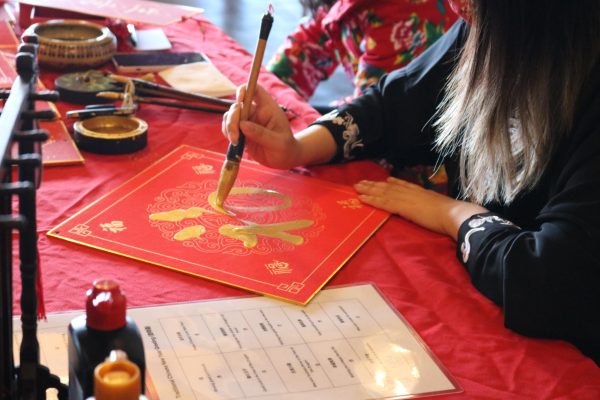
Sophomore Michelle Chow loved celebrating Lunar New Year while living in Hong Kong. It meant a loud bang of firecrackers, special feasts, and big family gatherings past midnight. In Burlingame, she lives with just her brother — thousands of miles away from her parents and relatives. The distance calls for a different kind of celebration.
“Last year, I was [in Burlingame] for Chinese New Year and my dad was calling me the entire time. I was doing all the celebrating virtually,” Chow said. “It makes me cherish family time even more and I realize how important the festival is for family.”
When Chow lived in Hong Kong, the Lunar New Year celebration was one of the most prominent festivals year-round. There, most people celebrate the new year over a 15-day period where they schedule different activities for each day.
Chow’s family starts the celebration by sweeping the house to rid it of bad fortune. Then, they begin decorating the house with red spring couplets.
“We hang up 春联 (chūnlián) and write Chinese calligraphy [ourselves], so it’s really meaningful,” Chow said. “I have bad handwriting, but my grandma is so good at penmanship, and she decorates the entire house with red paper with gold [characters].”
Another popular custom is handing out red envelopes. Chow’s family is especially cautious about specific digits of money. In Chinese culture, there is an association between similar-sounding Chinese characters. These characters are believed to have synonymous connotations.
“Some numbers sound like other Chinese words. Eight (八, bā) sounds like 发财 (‘fā cái’), which means getting rich and prosperity,” Chow said. “Four (四, sì) means death (死, sǐ), so people usually don’t pay in numbers with fours or they’re going to die.”
Although Chow’s parents are unable to come to Burlingame for Lunar New Year, she still looks forward to the celebration.
“My uncle’s family and my family friends are in America,” Chow said. ”We’re probably going to celebrate [with] a nice dinner with all the traditional Chinese food.”
Chow invites anyone to join Lunar New Year celebration — whether for the food, decorations, or the festivals.
“It doesn’t make a difference,” Chow said. “As long as you embrace the culture of Chinese people and know [its] origins, I think anyone can celebrate Lunar New Year.”



































